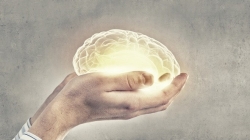Consciousness, Neuroscience, and Ethics

Drawing upon its interest in neuroethics, a developing field which is currently of concern in the scientific world, the Pontifical Academy for Life intends to promote an interdisciplinary study on the subject of human consciousness. Through discussion among scientists, medical doctors, bioethicists, and moral theologians, the Academy aims to foster dialogue between two distinct but related fields of study: the neuroscience of ethics and the ethics of neuroscience.
The neuroscience of ethics is concerned with the investigation, from the point of view of the brain, of some of the notions and traditional issues in ethics and moral psychology.
The ethics of neuroscience, on the other hand, is concerned with discussing neuroscientific studies from an ethical point of view and providing ethical evaluations on the production and use of neurotechnologies derived from these studies.
By offering a common platform in both fields, we propose to examine some of the main issues that concern science, society, and the Church, and which recall, with urgency, the question of human dignity:
-The irreducibility of the moral conscience and the question of free will in the no-freedom theory, libertarianism, and compatibilism;
-The levels of consciousness and alterations in temporary and persistent consciousness;
-Cognitive and emotional neuroenahncement and deep brain stimulation;
-The governance of neurotechnologies;
-Consciousness and the person: human dignity between functionalist-actualistic theories and substantialistic theories.


